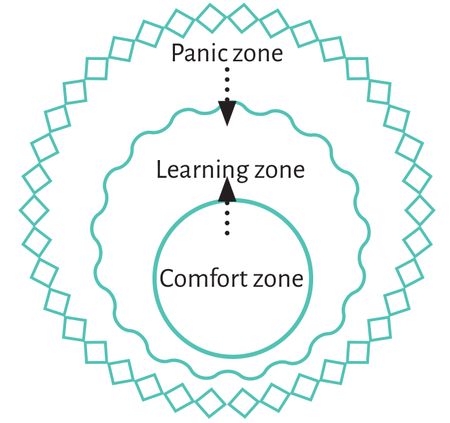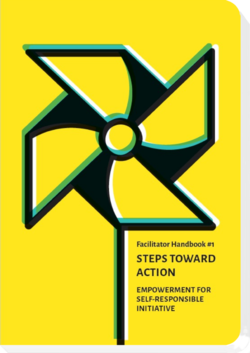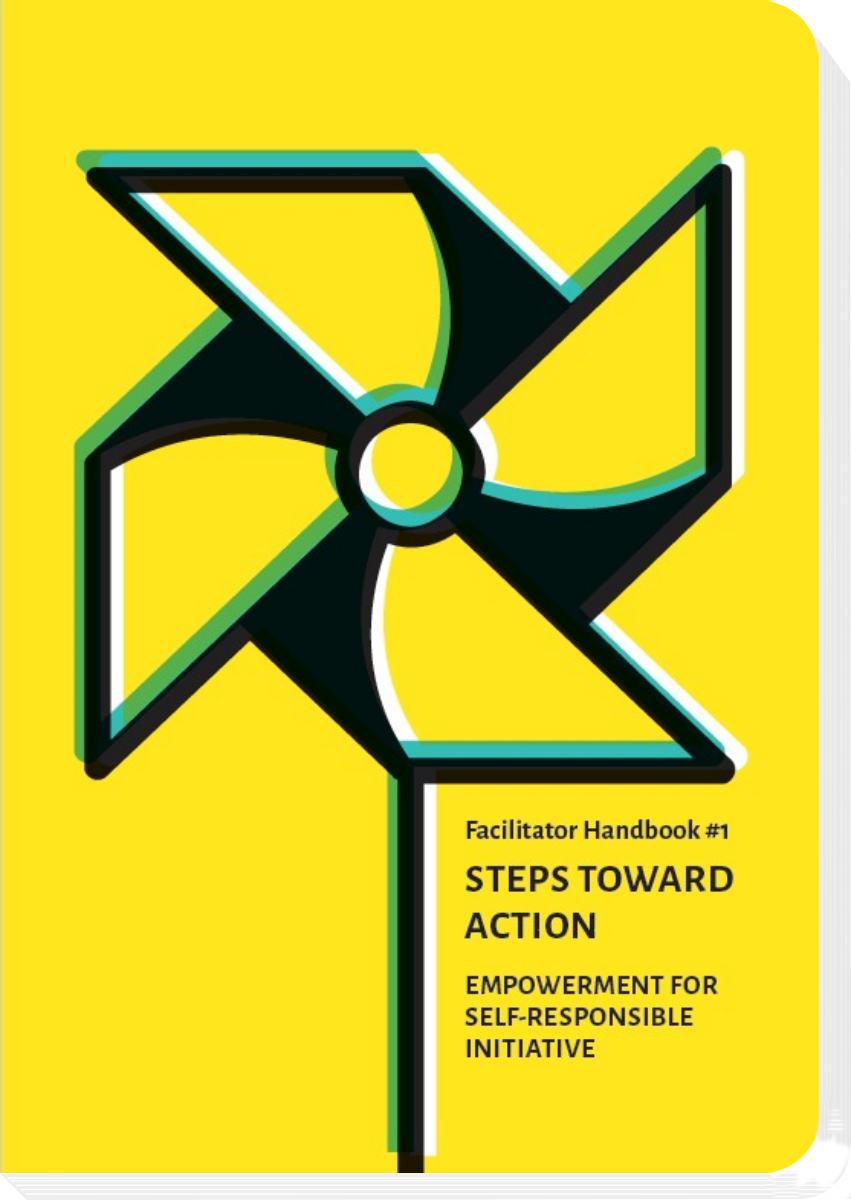When learners experience something for the first time, they often ask themselves questions such as: Can I do this? Do I know enough? What should I do? This uncertainty is an indication of the fact that they are leaving their comfort zone and entering the learning zone.
From some situations we learn that it can be good to be uncertain. However, if a learner feels helpless and panicky it could mean that they are already in the panic zone, and that the learning process isn’t working anymore. Keeping people within their learning zones means maintaining a healthy balance of uncertainty and control. People who begin to panic need structure and simplicity to be able to return to their learning zone. Those that are less passionate or too relaxed need to be challenged[1].
Contents
Zone of Proximal Development
The model goes back to L. Vygodsky. He described the space at the boundary between comfort and unknown as "zone of proximal development" and how facilitation and guidance can support learners to move into it, respectively how to widen it: In example by consciously setting challenges[2]. A related approach is "scaffolding". Both put emphasis on the instructive role of the facilitator for creating and reducing challenges and keeping learners in the learning zone.
References
- ↑ M. Gawinek-Dagargulia, E. Skowron, N. Zimmermann (Ed.): Steps toward Action; Empowerment for self-responsible initiative; Help your learners to discover their vision and to turn it into concrete civic engagement; Facilitator Handbook #1; MitOst Editions 2016
- ↑ Vygotsky, L. S. (1978). Mind in society: The development of higher psychological processes. Cambridge, MA: Harvard University Press
Eliza Skowron
Co-founder Working Between Cultures, born in Poland, studies at Jagielloian UniversityKraków (Polen). Facilitator and expert for constructive communication, Anti-Bias, train-the-trainer, author in Competendo.
Handbook for Facilitators: Steps toward Action
M. Gawinek-Dagargulia (ed.), N. Zimmermann (ed.), E. Skowron (ed.) (2016). Steps toward action. Empowerment for self-responsible initiative. Help your learners to discover their vision and to turn it into concrete civic engagement. Competendo Handbook for Facilitators.









